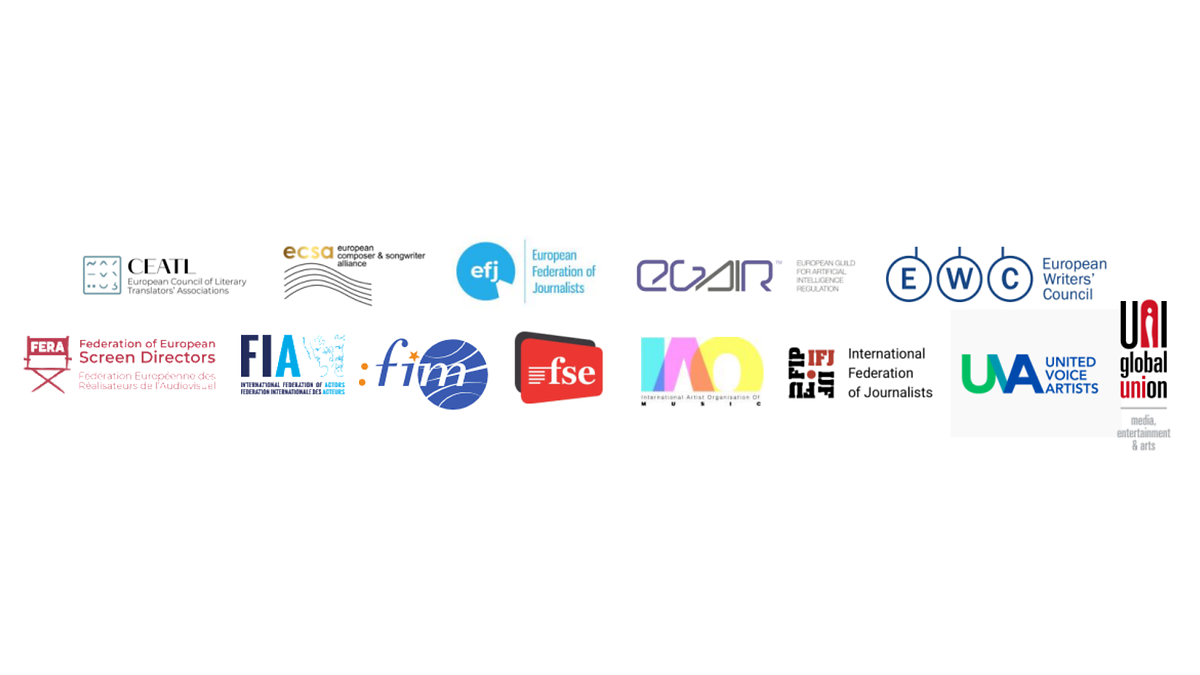Open letter to Ministers of Culture ahead of the Education, Youth, Culture and Sport Council on 12-13 May 2025

On 6 May 2025, various authors' and performers' representative organisations, including ECSA, wrote to EU Ministers of Culture ahead of the Education, Youth, Culture and Sport Council on 12 and 13 May 2025. Read the letter below.
Dear Ministers,
We are writing to you on behalf of a coalition of
organisations representing the collective voice of hundreds of thousands of
writers, translators, journalists, performers, composers, songwriters, screen
directors, screenwriters, visual artists, as well as other artists and creative
workers.
On 13 May, EU national ministers responsible for
culture policies will convene in Brussels for the Education, Youth, Culture and
Sport Council. Ahead of this meeting, Spain and Portugal have called for a
discussion on the value of the cultural and creative sectors in AI development,
focusing on the importance of safeguarding copyright and related rights, as
well as ensuring transparency in the General-Purpose AI Code of Practice under
the AI Act. In particular, they have urged to revise the current code so that
a) it reflects the fundamental principles of the Al Act and protects European
fundamental rights, including copyright, and b) it provides “authors, artists,
performers and rightsholders with clear, strong and accessible tools to
exercise and enforce their rights, while recognising their vital contribution
to the training and development of Al systems”[1].
Our organisations strongly support Spain and
Portugal’s position. Efficient transparency obligations as well as the respect
for copyright law (both on the Code of
Practice and the template) are essential to stay faithful to the AI Act and to
foster the development of an ethical and responsible AI ecosystem in our
sectors.
Ahead of the AI strategy for the cultural and creative
sectors and the Cultural Compass initiatives announced by the European
Commission, we also need a democratic debate about the impact of generative
AI on human artistry and on the cultural and creative sectors at large. Today,
generative AI models have been trained without any transparency on our members’
works and personal data, scraped and copied from the internet without any
authorisation nor any remuneration for the creators we represent. AI-manipulated
content also poses significant threats to European values, including democracy
and cultural diversity, as well as to our members’ reputation and moral rights,
and citizens’ trust in the veracity of digital content. As the deployment of
generative AI continues to expand at a rapid pace, such multi-faceted
challenges must be addressed at EU level.
Up until now, the EU has approached AI from the
perspective of innovation and competitiveness, while the Council of the EU has
touched on certain aspects of its impact on education, training and copyright. EU
Culture Ministers now have a prominent role to play, as it is high time for the
European Union to consider the specific impact of AI on European cultural
diversity and artistic freedom, which are cornerstones of European values and
essential pillars of well-functioning democracies.
[1] Letter from the Minister of Culture of Spain